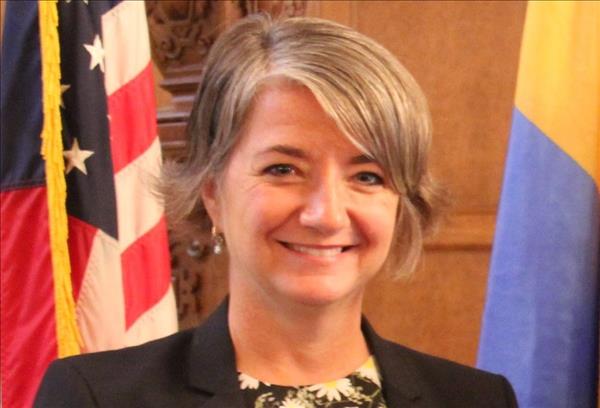
Influential Think-Tank Backs Finland's, Sweden's NATO Bid
One of the least appreciated yet most important functions of Washington's bipartisan foreign-policy“Blob” is the role it plays in making the unreasonable sound reasonable, and the new and potentially dangerous sound utterly benign and mundane.
In presenting changes in policies that have been in place for several generations, the Blob will wink and, with an assuring smile, tell us: Not to worry, there is no real change here.
That, in effect, was the message attendees received this week at a Brookings Institution panel event regarding what is looking very much like yet another round of NATO expansion.
Ambassadors from the likely 31st and 32nd members, Sweden and Finland, made their case to a friendly audience with the help of a pair of Brookings interlocutors Constanze Stelzenmüller and Michael O'Hanlon.
Thomas Wright, now a member of US President Joe Biden's National Security Council, but for years prior had served as the director of Brookings' Center for the United States and Europe, was once quoted in The New York Times as saying the Blob is but a myth in the minds of credulous outsiders who have never had the good fortune to be admitted into the club.
“My impression is that people who talk about the Blob,” Wright said in September 2021,“have not read or inquired into what the people in the think-tanks have actually said about the topic. They don't know what they're talking about.” In other words, who are you going to believe, me or your lying eyes?
This week's event, featuring the Finnish ambassador to the US, Mikko Hautala, and the Swedish ambassador to the US, Karin Olofsdotter, comes only a week after the two Nordic countries officially submitted their respective bids for membership at NATO headquarters in Brussels.
The move has gained wide and enthusiastic support in Washington policy circles, not least at Brookings, where the pair of ambassadors were given a warm welcome by retired four-star Marine General John Allen, who now serves as Brookings' president.
In her introduction, Stelzenmüller was up front as to the purpose of the event, which was mainly to promote Finland's and Sweden's accession to the North Atlantic Treaty Organization rather than debate the policy on its merits.
The Brookings audience was assured at every available opportunity that Sweden's and Finland's joining the alliance would not really be much of a change all all. After all, Article 42.7 of the EU treaty already includes a pan-European defense commitment, and Sweden and Finland have been members of the European Union since 1995.
Like Stelzenmüller, Ambassador Olofsdotter was at pains to show how little was actually being changed by Sweden's abandonment of its long-standing policy of neutrality.
Olofsdotter's pitch revolved around just how much Sweden is already an operative part of NATO. She also took the time to thank the US government for all the intelligence it provided the Swedes in the run-up to the Russian invasion of Ukraine. In doing so, her message was clear: We're already being treated like a member, why not make it official?
Likewise, Finnish Ambassador Mikko Hautala told the audience,“We have been integrating with NATO for 30 years.” Joining NATO, he continued, is the“final step on a long path to becoming a member state.”
Message transmitted, message received: The change we see before us is really no change at all.
Still more, the panel also took time to send some sweet talk to Turkish dictator Recep Tayyip Erdogan, who is – as of now – apparently the most formidable roadblock to Sweden's entry to the alliance.
Olofsdotter told the audience that her prime minister spoke to Erdogan on Saturday and described him as“a strong ally” in the fight against terrorism, which, if nothing else, proves that some people will say anything when they want something badly enough.
But Brookings moderator Michael O'Hanlon , who, like the Cold War–era columnist Joe Alsop, has“never gone where blood could be spilled that he didn't come back and say more blood,” went even further, and encouraged the Swedes to win over Erdogan by whitewashing the Turk's blood-soaked record during the Syrian Civil War.
Where O'Hanlon gained his much touted expertise in military affairs remains opaque, yet he felt that he had the expertise enough to tell the assembled that while Erdogan's record during the Syrian Civil War was mixed (!) , we owe Erdogan a debt of gratitude for taking in millions of refugees from that war – a war, O'Hanlon failed to mention, that Turkey, because of its funding and material support of Islamic State (ISIS), did more than any other state to prolong .
That being said, Stelzenmüller at least seemed aware that, in her words, there is“an undercurrent” of opposition to the idea of yet another round of NATO expansion, noting that it can be found“on the progressive left” in places like“the Quincy Institute sort of middle and on the right of the GOP.”
But for her part, Ambassador Olofsdotter said she personally had not heard such arguments.
Yet blithely abandoning a successful policy of neutrality in favor of a credulous trust in NATO's deterrence power seems a mistake – and one that will only deepen the division of Europe for a generation.

Legal Disclaimer:
MENAFN provides the
information “as is” without warranty of any kind. We do not accept
any responsibility or liability for the accuracy, content, images,
videos, licenses, completeness, legality, or reliability of the information
contained in this article. If you have any complaints or copyright
issues related to this article, kindly contact the provider above.

















Comments
No comment